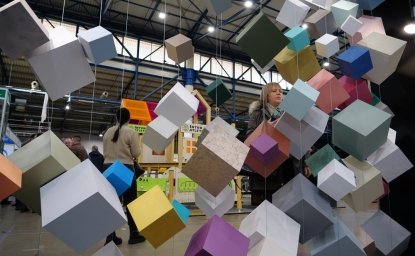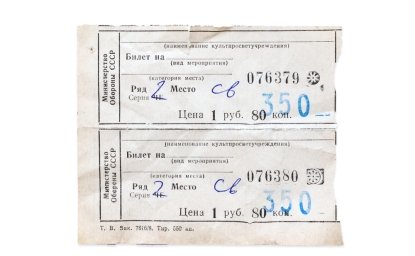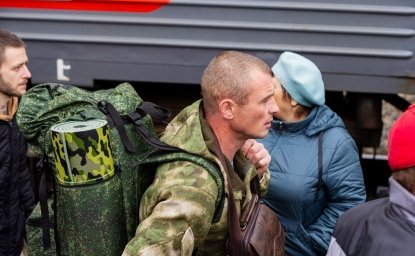Today, many analysts approach the topic of social reform in the Middle East by looking at changes to formal political institutions, i.e. constitutions, elections, and political parties. While top-down political reforms are an important part of the story, in the Arab Gulf countries today, we are witnessing another, bottom-up approach to social change, driven by a new generation of empowered, culturally-aware youth. In Qatar, the growing film industry and education sector represent two areas where youth are redefining the boundaries of acceptable public discourse through creative expression and civic engagement.
Over the past decade, the Qatari film industry has provided local filmmakers with a medium to tackle social issues through stories. In 2010, the Doha Film Institute was founded to promote development of the local film industry. In the same year, a group of Qataris independently founded Innovation Films to serve a similar purpose. Both organizations offer workshops to attract local talent and to provide them resources to produce quality films. As the popularity of these organizations increased, more people began to explore their interest in filmmaking and develop their skills. As a result, the number of filmmakers proliferated.
In 2012, Mohammed Al-Ibrahim, a Qatari filmmaker, released his short film, “Bidoon”. The term bidoon stands for ‘without’ in Arabic and refers to long-time residents of GCC states who do not officially hold citizenship in any GCC country. While bidoon have some recognition in certain GCC states, they are not treated as full citizens and thus have limited access to the public welfare system.
...the narrative of the film creatively illustrates and humanizes common struggles in their community.
The film tells the story of a young Qatari couple who fall in love while attending university. Complications arise when they decide to tie the knot. Aziz, a bidoon, is confronted with his underprivileged reality and forced to make a firm decision determining the fate of their relationship. Even though the issues surrounding bidoon in Qatar are generally known, the narrative of the film creatively illustrates and humanizes common struggles in their community.
Not only did the film spark significant public discussion about the challenges bidoon face, but it expanded the space for public engagement. In an interview with Reconnecting Arts, Al-Ibrahim described feeling scared before the release of the film due to the “touchy” nature of the subject. Nevertheless, a filmmaker friend encouraged him to move forward with filming. Ultimately, the film was a tremendous artistic success; many film festivals, including the Cannes Film Festival, showcased “Bidoon” and it won several awards.
More recently, Nadia Al-Khater, a female Qatari filmmaker, directed “A Proposal” - a short comedy about a Qatari man hoping to marry an American woman. In the film, before officially marrying, he must formally seek approval from a committee in the Ministry of Interior in Qatar. This is a formal procedure that Qatari citizens are required to undergo before marrying non-nationals. The potential spouses (both the Qatari and the foreign parties) are expected to meet a number of criteria. If the committee approves, the case escalates to the office of the Minister of Interior, who must also approve the marriage in order for it to move forward.
Not only does the film entertainingly depict the process of marrying a foreigner, but the choice of the comedy genre provides a disarmingly lighthearted setting to depict a contentious bureaucratic procedure. During a conversation with Al-Khater conducted in preparation for this article, she noted that directors often shy away from depicting contemporary topics in films. “It’s very palatable to make films set in the 1960s – an imaginary 1960s. It’s easy... Marriage is a controversial topic. Aside from the bureaucracy and the difficult approval procedure to marry a foreigner; there are a lot of unsaid and unofficial rules or customs among families even for potential marriages within the Qatari community. Because we are a small community with many sensitivities, the easiest topics to address are not about ourselves in the modern era, but often about other ‘Arab’ topics or imaginary historical settings.”
Films are not perceived as simply entertaining, but also a way to promote conversations about social issues.
Given the often private nature of Qatari society, filmmakers generally avoid depicting domestic realities to protect themselves from the criticism of friends and family members; choosing non-controversial subjects is seen as the best way to preserve one’s reputation. As the preceding two examples show however, films are not perceived as simply entertaining, but also a way to promote conversations about social issues.
How do we explain this change in the social attitudes of some Qatari filmmakers? One possible explanation is that it stems from the tremendous growth that the education sector has witnessed over the past 20 years – particularly the opening of branch campuses of major American universities in Qatar. Al-Khater was educated at Georgetown University’s Qatar campus, and this experience inspired her to present local stories through film. In our conversation, she explained “[attending Georgetown] breaks down your worldview and you see things differently. Even trying to write a story about this aspect, if I were to write about it, I don’t think I would have written about it this way. It gave me a lot of clarity.”
To Nadia’s point, state-led reforms in higher education have improved the ways in which people interact with and access knowledge. With the establishment of multiple American branch campuses in Education City (EC), many students have the opportunity to experience a culture of free expression in their work and classrooms, which is the hallmark of a liberal education. The campuses in EC are neither regulated by a governmental body nor required to follow any standardized curricula. Thus, these universities empower students to think beyond the status quo - an important step toward cultivating a culture of civic engagement.
For students, the experience of practicing advocacy in an educational context prepares them to become contributors to social discourse outside the campuses and within the overall society.
To cite one example, the Daily Q is a digital newspaper led by students in Northwestern University Qatar. It covers a variety of topics that concern the Education City community. Some of the articles address the living conditions surrounding migrant workers, a frequently discussed topic in international media; the title of one of the most recent articles is “Tales of a Neglected Workforce in Education City.” As the government continues to make efforts to improve workers’ rights, the students’ work helps draw attention to the issue. Their empirical data can influence policymakers’ understanding of certain contexts such as the impact of long work hours on productivity. This is one example of how discourse within Education City can aid the development of solutions to major challenges. Moreover, for students, the experience of practicing advocacy in an educational context prepares them to become contributors to social discourse outside the campuses and within the overall society.
In a bolder incident, also covered by the Daily Q, the hosting of Dr. Alan Dershowitz by Qatar Foundation in 2018 sparked a serious debate among members of the student body and the rest of the community in EC. People who sharply opposed Dershowitz’s invitation referenced his staunchly pro-Israel views as well as his critical views on Qatar. Others defended Dershowitz’s visit by arguing that it is common and expected to come across dissenting views in academia. Irrespective of peoples’ viewpoints, both sides felt comfortable expressing their opinion on the matter. Those who opposed the event were able to engage in a form of peaceful protest by expressing their stance in emails that they sent to different parties and on social media. This is another example of how Education City universities are promoting frank, open discussion on public issues.
At the end of the day, although top-down reforms are crucial, the younger generations are taking important steps to creatively build open spaces for public discourse. The developments currently happening in the areas of filmmaking and higher education are promoting civic engagement and have the potential to actualize more significant changes down the line. As more people become involved, over time, others will feel inspired to take part in the project of building vibrant, civically-engaged societies.
The views expressed in these articles are those of the author and do not reflect an official position of the Wilson Center.
Author

Ph.D. Candidate, Faculty of Education, Cambridge University

Middle East Program
The Wilson Center’s Middle East Program serves as a crucial resource for the policymaking community and beyond, providing analyses and research that helps inform US foreign policymaking, stimulates public debate, and expands knowledge about issues in the wider Middle East and North Africa (MENA) region. Read more

Explore More
Browse Insights & Analysis
Building a Thriving Ukrainian Design Community Now

Чудеса в глазах смотрящего

Уехал на СВО

